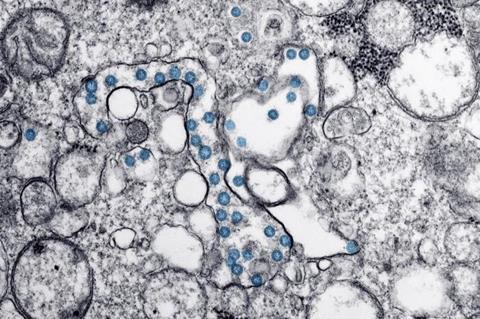The rapidly evolving SARS-CoV-2 has continued to pose a threat to human health, as reinfection by new variants could still result in long COVID-19 etc., severely straining global healthcare systems. Periodically updating the COVID-19 vaccine antigen has become a widely adopted strategy to counter new virus variants.

However, comparative clinical evaluation of variant-updated vaccines has been rare in the Chinese population. Dr. Zhang and his team performed a randomized clinical trial to evaluate the safety and immunogenicity of omicron XBB.1.5-containing bivalent mRNA vaccine (RQ3027), published in hLife.
Vaccines under the spotlight
RQ3027 is an immunogen-updated bivalent mRNA-based vaccine composed of XBB.1.5 and Alpha/Beta variants using the same platform as its precedent version RQ3013. RQ3013 is a lipid-nanoparticle-embedded modified-mRNA-based vaccine encoding a chimeric Spike protein containing mutations from both B.1.1.7 (Alpha) and B.1.351 (Beta) variants, which is jointly developed by Fudan University, Shanghai Rnacure Biopharma Co., Ltd. and Walvax Biotechnology Co., Ltd. Another investigational vaccine - RQ3025 is an updated bivalent mRNA-based vaccine composite of BA.2/BA.5 (combined mutation of BA.2 and BA.4/5) and Alpha/Beta variants Spike.
This study revealed that RQ3027 and RQ3025 boosters elicited superior neutralizing antibodies (NAbs) against XBB.1.5, XBB.1.16, XBB.1.9.1 and JN.1 compared to RQ3013 at day 14 in participants without SARS-CoV-2 infection. All study vaccines were well-tolerated without serious adverse reactions identified. The incidence rates per 1000 person-years of COVID-19 cases during the 2nd-19th week after randomization were the lowest in the RQ3027 group.
Emerging variants
The authors concluded: “Based on current COVID vaccine trials as well as our research, newer variant-matched vaccines can elicit enhanced immune responses against newly emerged variants.”
This study reported a very comprehensive evaluation of neutralization against 9 different SARS-CoV-2 variants by three types of variant vaccines of the same delivery system in a head-to-head design. Such cohort provided a good opportunity to study how immune imprinting interacts with new antigens at different antigenic distances to establish new immunogenicity against new variants.







No comments yet